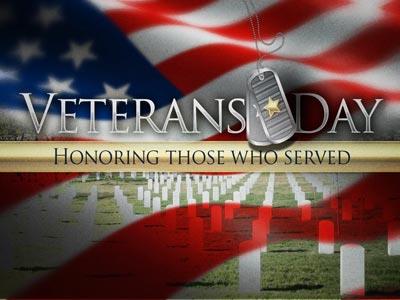-
The Christian's Duty In Times Of War
Contributed by Jerry Flury on Mar 21, 2003 (message contributor)
Summary: We live in a world that bears the effects of sin. In this sin-stained world there will be times of peace and times of war. When war does come what should be the Christian’s response? How should he react and what should he do?
THE CHRISTIAN’S DUTY IN TIMES OF WAR
INTRODUCTION: We live in a world that bears the effects of sin. Ecclesiastes tells us that in the reality of this sin-stained world there will be times of peace and times of war. When war does come as it has to our country both in our war on terrorism and the conflict in Iraq, what should be the Christian’s response? How should he react and what should he do?
I. SUPPORT AND HONOR OUR GOVERNMENT
A. Romans 13:1-4 "Let every soul be subject unto the higher powers. For there is no power but of God: the powers that be are ordained of God. [2] Whosoever therefore resists the power resists the ordinance of God: and they that resist shall receive to themselves damnation. [3] For rulers are not a terror to good works, but to the evil. Wilt thou then not be afraid of the power? do that which is good, and thou shalt have praise of the same: [4] For he is the minister of God to thee for good. But if thou do that, which is evil, be afraid; for he bears not the sword in vain: for he is the minister of God, a revenger to execute wrath upon him that does evil."
B. 1 Peter 2:17 "Honor all men. Love the brotherhood. Fear God. Honor the king."
C. God ordains our government. We are to be in submit to the authority of our government and serve in what ever capacity we are called on to serve whether civil or militarily except when we are called to do that which is a clear violation of the Word of God.
D. Acts 5:29 "Then Peter and the other apostles answered and said, We ought to obey God rather than men."
E. Christianity and patriotism have much in common. It is significant to note that: Our patriotic hymn, "My Country, ’Tis of Thee," was written by a Baptist clergyman, Samuel Francis Smith. A Baptist minister, Francis Bellamy, wrote the Pledge of Allegiance to the flag in 1892. The words, "In God We Trust," carried on all of our coins, are traced to the efforts of the Rev. W. R. Watkinson of Ridleyville, Pennsylvania. His letter of concern, addressed to the Hon. S. P Chase, was dated November 13, 1861. Seven days later Mr. Chase wrote to James Pollock, Director of the U.S. Mint as follows: "No nation can be strong except in the strength of God, or safe except in His defense. The trust of our people in God should be declared on our national coins. Will you cause a device to be prepared without delay with a motto expressing in the finest and tersest words possible, this national recognition." The president of the College of New Jersey, the Reverend John Witherspoon, a Presbyterian, was the only clergyman to sign the Declaration of Independence. He is too much forgotten in our history books: John Witherspoon had a far-reaching influence on democracy. He had personally taught several of the signers of the document, and nine of them were graduates of the little college over which he presided at Princeton. When he took up his pen to put his name to the document, Witherspoon declared: "There is a tide in the affairs of men, a spark. We perceive it now before us. To hesitate is to consent to our own slavery. That noble instrument upon the table, that insures immortality to its author, should be subscribed this very morning by every pen in this house. He that will not respond to its accents, and strain every nerve to carry into effect its provisions, is unworthy of the name of free man. For my own part, of property I have some; of reputation, more. That reputation is staked, that property is pledged on the issue of this contest; and although these gray hairs must soon descend into the sepulcher, I would infinitely rather that they descend thither by the hand of the executioner than desert at this crisis the sacred cause of my country."
F. Whatever makes good Christians makes them good citizens.
II. PRAY FOR OUR LEADERSHIP
A. 1 Timothy 2:1-2 "I exhort therefore, that, first of all, supplications, prayers, intercessions, and giving of thanks, be made for all men; [2] For kings, and for all that are in authority; that we may lead a quiet and peaceable life in all godliness and honesty."
B. Ezra 6:10b "¡Kpray for the life of the king, and of his sons."
C. Things to pray for
1. Protection for the lives of him and his family
2. Peace and clarity of mind as he stands in leadership and the defense of liberty
3. For the perfect will of God to be revealed to him
4. That God will provide wise and godly counsel in his administration

 Sermon Central
Sermon Central



